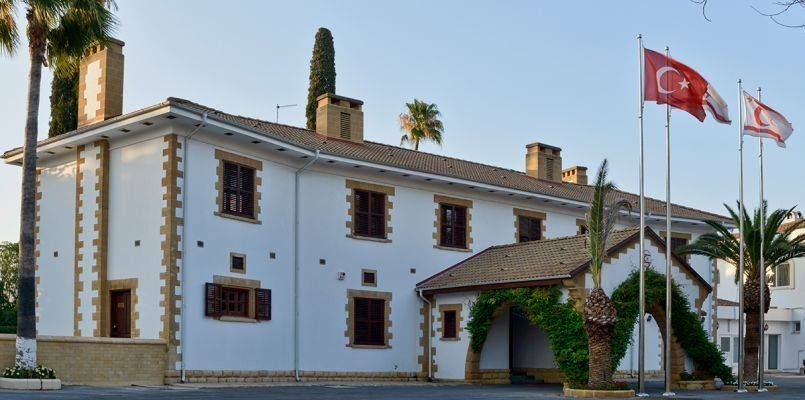Presidential Statement on the United Nations Security Council resolution

The UN Security Council, in the resolution it has adopted today, resolution no. 2598, has cast a shadow over the very efforts that it has mandated the UN Secretary-General to carry out and that are underway under the supervision of the UN Secretary-General to determine whether there is common ground between the two sides in Cyprus. While, on the one hand, the Security Council states that it fully supports these efforts and the convening of a second informal meeting in the near future, on the other hand, it contradicts itself by acting as if there is common ground by making reference to the exhausted basis which has proven to have failed repeatedly in the processes conducted over the past 53 years.
A solution to the Cyprus issue can only be reached through formal negotiations to be conducted only after the two sides agree on a common ground on their free will. As the Turkish Cypriot side, we will never entertain imposed models. The main reasons for the deadlock in the Cyprus issue is to the hegemonic aspiration of the Greek Cypriot side, and just as importantly, the lack of equality between the parties.
While one side maintains its uncompromising stance based on a claim that it is the sole legitimate authority that represents the island of Cyprus, unjust isolation has been imposed on the other party that continues to be treated as a 'community'. The Turkish Cypriots are not a 'community', but a People with an independent State, which is at least as sovereign as that of Greek Cypriots. It should not be forgotten that the 1960 partnership Republic of Cyprus, currently occupied by the Greek Cypriot side and transformed into a Greek Cypriot State, has been established with the consent of the Turkish Cypriot People.
As President Ersin Tatar explained clearly to his Greek Cypriot counterpart and other participants during the five-plus-UN informal meeting held in Geneva in April, the Turkish Cypriot People will never give up their sovereign equality and equal international status, and formal negotiations can start only after the recognition of these facts, in other words, upon the establishment of equality between the parties. The solution of the Cyprus issue is possible on the basis of a cooperative relationship of the two States based on the sovereign equality and equal international status of the two sides.
The references to the exhausted and unsustainable basis in the UN Security Council resolution cannot serve any other purpose but the continuation of the status quo. The Turkish Cypriot side will continue to show its constructive stance, in good faith, during the consultations, and will attend the second informal meeting in this spirit.
The efforts of the UN Security Council that are geared towards the continuation of the status quo are inconsistent with its consideration in the resolution that the status quo is unsustainable. The 47-year status of the closed part of Maraş (Varosha), that is defined as the pilot region, has been changed. As a result of this change, the access to the properties by the former inhabitants in what has been turned into a civilian area by the decision of the Council of Ministers is made possible, through the Immovable Property Commission, that is recognized as an effective domestic remedy by the European Court of Human Rights, which can now grant all three remedies, namely restitution, compensation and exchange.
The most important feature of this step is that the closed part of Maraş, which was kept closed due to the uncompromising attitude of the Greek Cypriot leadership and which has turned into one of the symbols of the status quo, has been turned into the pioneer of change in Cyprus. Closed part of Maraş, located in the Famagusta region, is gradually being incorporated into civilian life, giving due consideration to the rights of its former habitants.
At this stage, our call to the circles who have taken on the role of protectors of the status quo is to stop their efforts against our opening which aims at granting access to rights and the law.
Assessment concerning other parts of the resolution, which welcomed the reports of the UN Secretary-General on his Good Offices and on the United Nations operation in Cyprus and which has extended the mandate of UNFICYP for another six months, was shared with the public by our Ministry of Foreign Affairs.
A solution to the Cyprus issue can only be reached through formal negotiations to be conducted only after the two sides agree on a common ground on their free will. As the Turkish Cypriot side, we will never entertain imposed models. The main reasons for the deadlock in the Cyprus issue is to the hegemonic aspiration of the Greek Cypriot side, and just as importantly, the lack of equality between the parties.
While one side maintains its uncompromising stance based on a claim that it is the sole legitimate authority that represents the island of Cyprus, unjust isolation has been imposed on the other party that continues to be treated as a 'community'. The Turkish Cypriots are not a 'community', but a People with an independent State, which is at least as sovereign as that of Greek Cypriots. It should not be forgotten that the 1960 partnership Republic of Cyprus, currently occupied by the Greek Cypriot side and transformed into a Greek Cypriot State, has been established with the consent of the Turkish Cypriot People.
As President Ersin Tatar explained clearly to his Greek Cypriot counterpart and other participants during the five-plus-UN informal meeting held in Geneva in April, the Turkish Cypriot People will never give up their sovereign equality and equal international status, and formal negotiations can start only after the recognition of these facts, in other words, upon the establishment of equality between the parties. The solution of the Cyprus issue is possible on the basis of a cooperative relationship of the two States based on the sovereign equality and equal international status of the two sides.
The references to the exhausted and unsustainable basis in the UN Security Council resolution cannot serve any other purpose but the continuation of the status quo. The Turkish Cypriot side will continue to show its constructive stance, in good faith, during the consultations, and will attend the second informal meeting in this spirit.
The efforts of the UN Security Council that are geared towards the continuation of the status quo are inconsistent with its consideration in the resolution that the status quo is unsustainable. The 47-year status of the closed part of Maraş (Varosha), that is defined as the pilot region, has been changed. As a result of this change, the access to the properties by the former inhabitants in what has been turned into a civilian area by the decision of the Council of Ministers is made possible, through the Immovable Property Commission, that is recognized as an effective domestic remedy by the European Court of Human Rights, which can now grant all three remedies, namely restitution, compensation and exchange.
The most important feature of this step is that the closed part of Maraş, which was kept closed due to the uncompromising attitude of the Greek Cypriot leadership and which has turned into one of the symbols of the status quo, has been turned into the pioneer of change in Cyprus. Closed part of Maraş, located in the Famagusta region, is gradually being incorporated into civilian life, giving due consideration to the rights of its former habitants.
At this stage, our call to the circles who have taken on the role of protectors of the status quo is to stop their efforts against our opening which aims at granting access to rights and the law.
Assessment concerning other parts of the resolution, which welcomed the reports of the UN Secretary-General on his Good Offices and on the United Nations operation in Cyprus and which has extended the mandate of UNFICYP for another six months, was shared with the public by our Ministry of Foreign Affairs.

